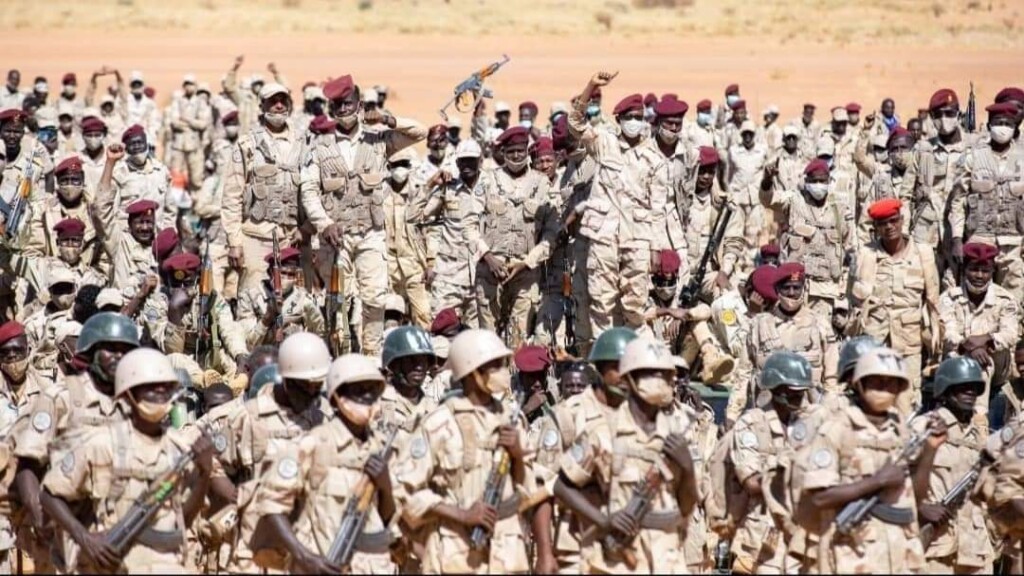Military expert predicts end of Sudan war ‘within three months’

Paramilitaries of the Rapid Support Forces in Merowe in northern Sudan, April 12 (RSF)
According to Brig Abdelgadir El Samani, the balance of power between the warring Sudan Armed Forces (SAF) and its paramilitary counterpart the Rapid Support Forces (RSF) favours the army. He says that the war in Khartoum will likely be resolved within a maximum period of three months.
In an interview with Radio Dabanga yesterday, El Samani highlighted that the SAF have recently adopted new tactics by targeting and depleting bases of the RSF, instead of solely focusing on defensive strategies to protect key army bases and sites.
The army brigadier attributed the prolonged duration of the war to “the challenges posed by urban warfare in a vast area like Khartoum, which requires a considerable number of infantry soldiers that the SAF currently lack.”
A significant step taken by the SAF, he said, is the recruitment and training of civilians, capable of bearing arms in their neighbourhoods, to “help counter the RSF”. However, this measure has faced criticism, as people in Khartoum fear retaliation by the RSF due to the presence of armed civilians.
The balance of power, including training, use of heavy weapons, professionalism, experience, and planning favours the SAF, the military expert said. “Nonetheless, the RSF holds an advantage in terms of the sheer number of infantry soldiers present in Khartoum, and their effective use of agile movement and light weapons, enabling them to manoeuvre through the city.”
Despite the RSF’s significant presence in neighbourhoods and control of strategic bridges, El Samani pointed out that this does not guarantee a swift resolution of the battles.
‘The balance of military power favours the army, while the RSF holds an advantage in terms of the sheer number of soldiers and their effective use of agile movement.’ – Brig Abdelgadir El Samani
The bridges in Khartoum state, such as the Shambat Bridge connecting Khartoum North (Khartoum Bahri) and Omdurman, and the El Manshiya and Soba bridges linking Khartoum North with Khartoum, are still contested, with fierce battles ongoing around Kober Bridge.
The SAF, on the other hand, hold control over the Blue Nile Bridge (Khartoum-Khartoum North), the El Fitihab bridge (Khartoum-Omdurman), and the Halfaya bridge (Khartoum North-Omdurman).
El Samani attributed the army’s challenges, in part, to “deliberate neglect by the authorities” since the coup d’etat of Omar Al Bashir in 1989, reflected by reduced financial support and training opportunities.
He criticised the current SAF leadership for not selecting “the right battlefields” and overlooking the movements of the RSF before the outbreak of the war. He identified the army’s failure to maintain control over areas it cleared allowing the RSF to reclaim these areas, as a critical problem.
Regarding the civilian casualties, El Samani stated that given the nature of urban warfare, the number of victims from air and artillery bombardment in Khartoum state is “relatively limited”.
According to the Sudanese Ministry of Health, the death toll of the war that broke out mid-April has surpassed 1,100, with more than 1,200 wounded.











 and then
and then